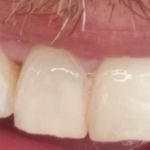Understanding Mouth Ulcers
Mouth ulcers are small sores that can form in various parts of the mouth, such as the gums, lips, tongue, inner cheeks, or roof of the mouth. They can be quite uncomfortable and affect our daily activities like eating, drinking, and speaking. There are different types of mouth ulcers, and their causes can vary.
Causes of Mouth Ulcers
Mouth ulcers can result from minor tissue injury during dental work or accidentally biting the cheek or tongue. Allergic reactions to certain bacteria, wearing braces or retainers, using harsh toothpaste, consuming lots of acidic foods, hormonal changes, stress, lack of sleep, and underlying health conditions like vitamin deficiencies, viral or fungal infections, Crohn's disease, celiac disease, reactive arthritis, lupus, and Behçet's disease can also cause them.
Symptoms of Mouth Ulcers
These sores are typically red around the edges and white, yellow, or gray in the center. One may have a single ulcer or multiple ones. Other symptoms include swelling around the ulcers, increased soreness when brushing teeth, and pain that worsens when consuming spicy, salty, or sour foods.
Diagnosis and Tests
A healthcare provider can diagnose a mouth ulcer through a visual examination. In severe cases or when a specific health condition is suspected, blood tests might be ordered.
Treatment of Mouth Ulcers
While most mouth ulcers heal on their own, healthcare providers may prescribe medications like antiseptic gels, steroid ointments, or immunosuppressants in severe cases. At home, one can relieve symptoms by drinking plenty of water, maintaining good oral hygiene, rinsing the mouth with warm saltwater, using a hydrogen peroxide and water mixture, avoiding hot and spicy foods, and applying over-the-counter topical anesthetics.
Prevention of Mouth Ulcers
Although it's not possible to prevent mouth ulcers completely, there are several measures one can take to reduce the risk. Brushing teeth twice daily and flossing once daily with a soft-bristled toothbrush helps avoid tissue irritation. Eating a healthy diet rich in fresh fruits and vegetables and visiting the dentist regularly for checkups and cleanings are important. Treating underlying conditions that cause sores can also lower the risk of recurrence.
When to Seek Medical Attention
If mouth sores last for three weeks or longer, new sores appear before the old ones heal, ulcers affect the outer part of the lips, pain doesn't improve with medication, there are unusually large mouth ulcers, mouth sores are painless, or there is fever or diarrhea, it's advisable to consult a healthcare provider. Severe or frequent mouth ulcer sufferers should ask their provider questions such as the reason for recurring ulcers, if an underlying condition is causing them, ways to reduce the risk, recommended medications, and necessary diet or lifestyle changes.
Conclusion
Mouth ulcers can be a nuisance, but with the right knowledge and preventive measures, we can minimize their occurrence. By maintaining good oral hygiene, following a healthy diet, and addressing any underlying health issues, we can significantly reduce the risk of developing mouth ulcers. Remember, if mouth ulcers persist for an extended period or cause significant discomfort, it's essential to seek professional medical advice. Taking care of our mouths is an important part of overall health and well-being.




 Maui Whitening Orlando4.0 (32 review)
Maui Whitening Orlando4.0 (32 review) Bloomington Southside Dental Care3.0 (26 review)
Bloomington Southside Dental Care3.0 (26 review) Christiana Dental Center4.0 (650 review)
Christiana Dental Center4.0 (650 review) Carolina Dental Arts - New Bern Ave4.0 (152 review)
Carolina Dental Arts - New Bern Ave4.0 (152 review) Equitas Health Short North Medical Center3.0 (96 review)
Equitas Health Short North Medical Center3.0 (96 review) Prosthodontics of Madison - Kendra Schaefer, DMD & Christine Roenitz, DMD4.0 (25 review)
Prosthodontics of Madison - Kendra Schaefer, DMD & Christine Roenitz, DMD4.0 (25 review) The Importance of Oral Health Education During Pregnancy for a Healthy Pregnancy
The Importance of Oral Health Education During Pregnancy for a Healthy Pregnancy Best Tips for Brushing Your Teeth Properly for Healthy Gums: Essential Techniques for Oral Health
Best Tips for Brushing Your Teeth Properly for Healthy Gums: Essential Techniques for Oral Health Why Skipping Dental Checkups Can Lead to Bigger Oral Health Problems
Why Skipping Dental Checkups Can Lead to Bigger Oral Health Problems Advantages of Porcelain Dental Restorations
Advantages of Porcelain Dental Restorations How Can Diabetes Cause Tooth and Gum Problems? Preventing and Managing Oral Health Issues
How Can Diabetes Cause Tooth and Gum Problems? Preventing and Managing Oral Health Issues Healthy Habits for Promoting Good Oral Health and Hygiene: Tips for a Healthy Smile
Healthy Habits for Promoting Good Oral Health and Hygiene: Tips for a Healthy Smile